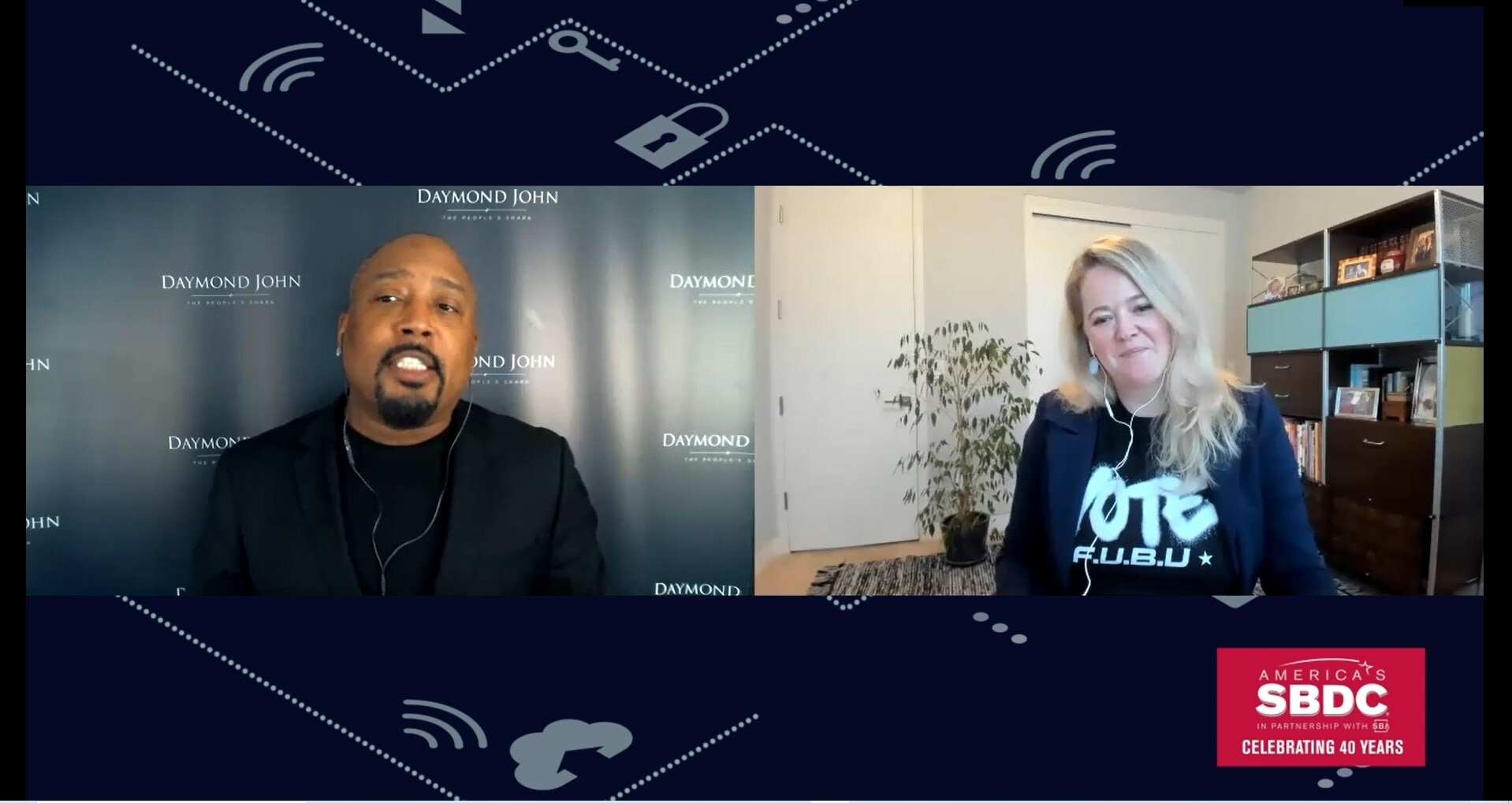You’re probably familiar with Daymond John from his 11 years on Shark Tank, where he’s earned the title “The People’s Shark,” but over the past 20 years he’s evolved into a branding expert, author, consultant, and speaker, having helped create the untapped urban apparel market with his iconic brand FUBU (“For Us By Us”).
I recently had the honor of interviewing him about entrepreneurship at America’s Small Business Development Center’s virtual conference, an event designed to support the thousands of coaches and mentors around the country who are providing no-cost business consulting and low-cost training to new and existing small businesses. This organization, funded by the Small Business Administration, has been around for 40 years—about the same amount of time as Intuit—and we have been working with them for decades, as we share a mission to help small businesses succeed and remain competitive.
Daymond deeply understands the hardships of starting a business from nothing. He has experienced all aspects of its ups and downs, successes and failures, and its effect on families and friends. Daymond’s mother was one of his original investors in FUBU. She mortgaged the family’s home in Queens to raise $100,000 in start-up capital and turned part of it into a makeshift factory and office space.
During our conversation, Daymond shared a wealth of insight into what he’s learned throughout his career as well as practical advice for turning that insight into action. I believe every entrepreneur can benefit from his knowledge. His words inspired the audience—and me!—so I grouped together some key themes that came up during our chat so I could share them with you.














